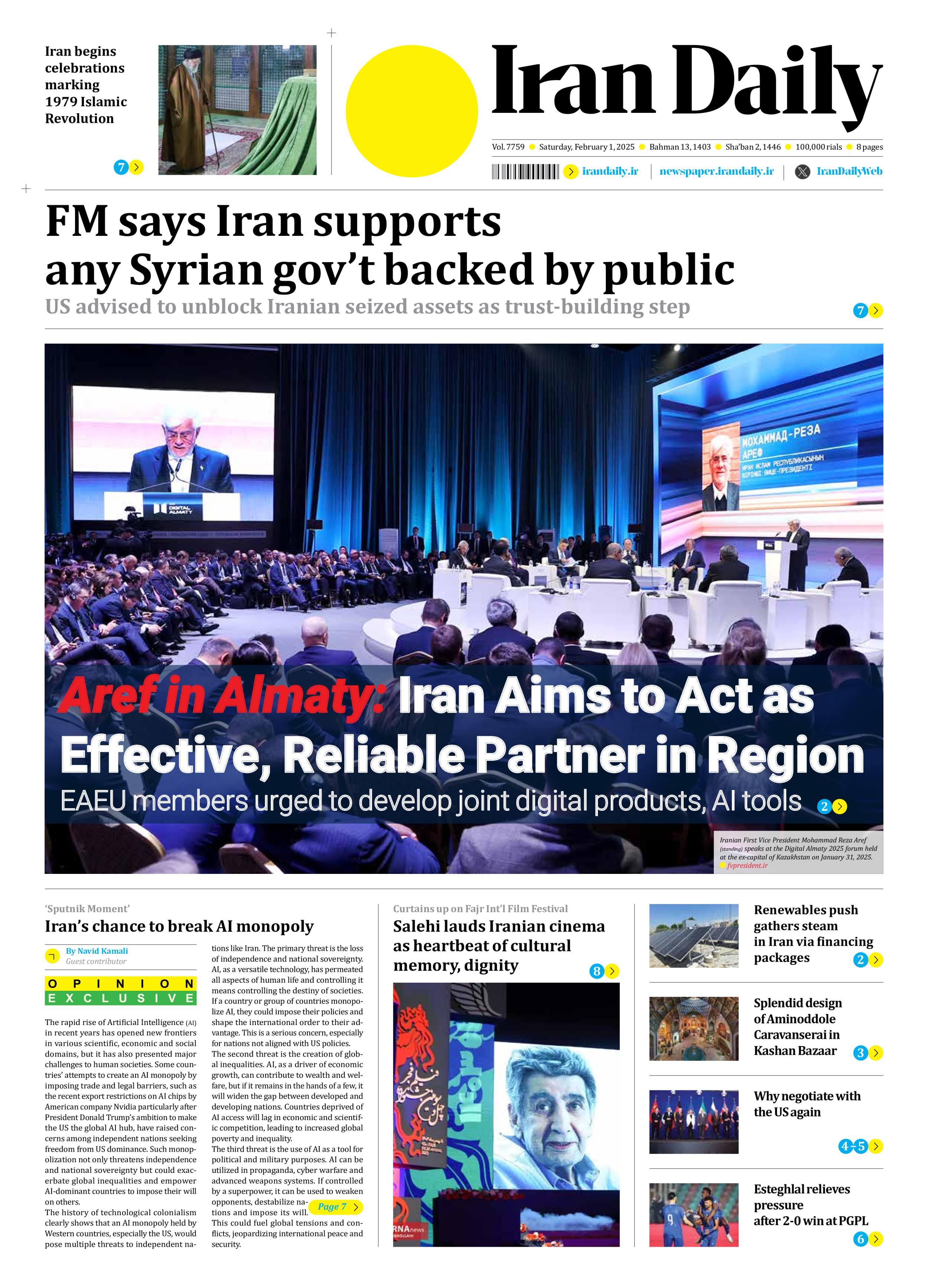
‘Sputnik Moment’
Iran’s chance to break AI monopoly
By Navid Kamali
Guest contributor
The rapid rise of Artificial Intelligence (AI) in recent years has opened new frontiers in various scientific, economic and social domains, but it has also presented major challenges to human societies. Some countries’ attempts to create an AI monopoly by imposing trade and legal barriers, such as the recent export restrictions on AI chips by American company Nvidia particularly after President Donald Trump’s ambition to make the US the global AI hub, have raised concerns among independent nations seeking freedom from US dominance. Such monopolization not only threatens independence and national sovereignty but could exacerbate global inequalities and empower AI-dominant countries to impose their will on others.
The history of technological colonialism clearly shows that an AI monopoly held by Western countries, especially the US, would pose multiple threats to independent nations like Iran. The primary threat is the loss of independence and national sovereignty. AI, as a versatile technology, has permeated all aspects of human life and controlling it means controlling the destiny of societies. If a country or group of countries monopolize AI, they could impose their policies and shape the international order to their advantage. This is a serious concern, especially for nations not aligned with US policies.
The second threat is the creation of global inequalities. AI, as a driver of economic growth, can contribute to wealth and welfare, but if it remains in the hands of a few, it will widen the gap between developed and developing nations. Countries deprived of AI access will lag in economic and scientific competition, leading to increased global poverty and inequality.
The third threat is the use of AI as a tool for political and military purposes. AI can be utilized in propaganda, cyber warfare and advanced weapons systems. If controlled by a superpower, it can be used to weaken opponents, destabilize nations and impose its will. This could fuel global tensions and conflicts, jeopardizing international peace and security.
Page 7







